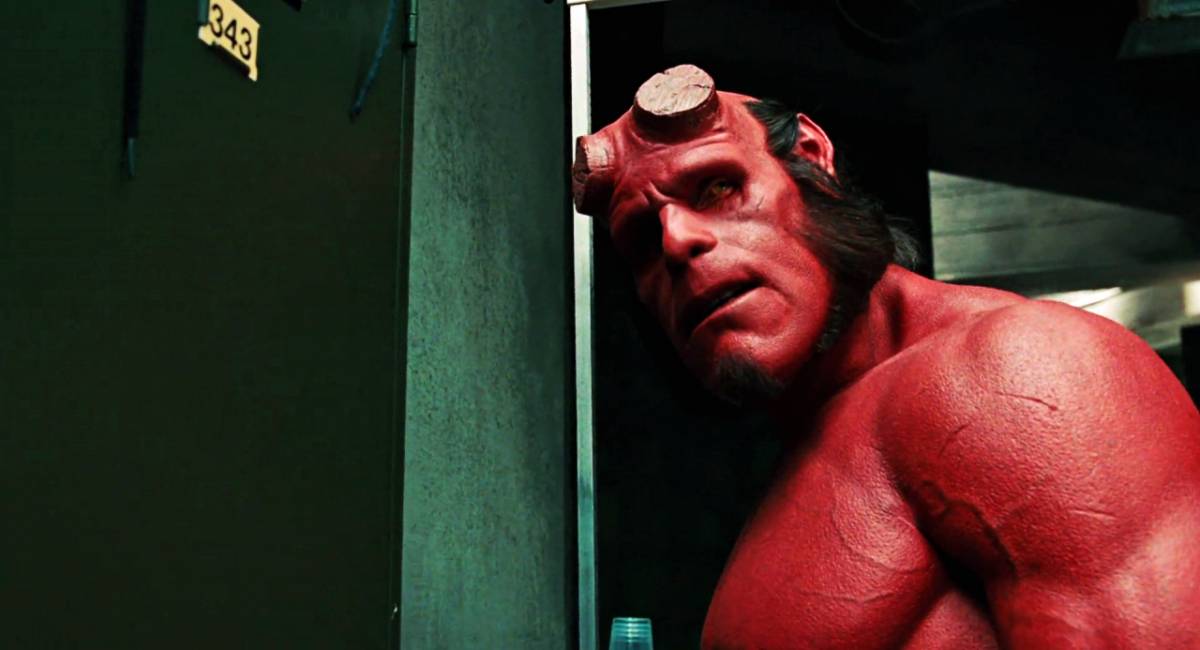If you’ve been to see Guillermo del Toro’s latest film, The Shape of Water, you may have taken away two thoughts about the film. Firstly, that it ranks among his best films and may win big at this year’s Academy Awards. Secondly, that Sally Hawkins’s amphibious lover bears a striking resemblance to a character from two other Guillermo del Toro films, Hellboy and Hellboy II: The Golden Army.
I’m of course talking about Abe Sapien, the humanoid fish creature played by Doug Jones who enjoys classical music and a diet of rotten eggs. In The Shape of Water, The Asset, as Michael Shannon’s character describes him, Doug Jones returns as another humanoid fish creature, who also happens to love music (this time contemporary 1950s fare) and eggs (not rotten though, just hard-boiled). The fact that both Sapien and the Asset look almost identical just adds more credence to the notion that The Shape of Water is somehow within the same universe as Guillermo del Toro’s Hellboy films.
For legal reasons, this could never be made official by del Toro himself, especially as the Hellboy character is getting rebooted with David Harbour in the role and Neil Marshall directing. Though in my heart of hearts, I would have loved for The Shape of Water to have a bizarre Avengers-esque ending with perhaps someone from the BRPD taking the Asset into their care, I knew that this never would, could or even should have happened.
While The Shape of Water and the Hellboy films are very different in terms of story, mood and scale, the same director connects the two films on a thematic and a visual level. Del Toro particularly enjoys delving into themes of “the monster”, and our relationship with monsters. In Hellboy, the monsters are superheroes. In The Shape of Water, the monster is a romantic lead. And in both films, we have examples of inter-species romance played sincerely with little comment from the other characters. By the end of Hellboy II, Liz Sherman and Hellboy are expecting twins. Though Sally Hawkins’s Elisa and the Asset don’t go as far as conceiving children, they certainly give it a go more than once in the film’s much-discussed erotic scenes.
In both films, the other characters react not with disgust but with warmth, perhaps emphasising the surreal dream-like quality of the world these characters inhabit respectively, but which also makes one laugh when thinking about it logically. If you were told by a friend that they had made love to something that wasn’t human, you wouldn’t immediately want to embrace them with open arms.
If we are to take The Shape of Water as an unofficial spin-off from del Toro’s Hellboy films, then the film does give us an interesting study of how one can play around with genre within a set universe. One film that comes to mind in a similar way is M. Night Shyamalan’s Split. For those of you who haven’t seen Split, stop reading and immediately go watch it. For those who have, then how many of us were expecting an appearance from Bruce Willis as David Dunn in the film’s last shot?
However, rather than seeming like a cheap throwaway cameo, Shyamalan’s choice to link Unbreakable and Split together gives us a more enlightened opinion on the latter film. While Unbreakable is a superhero origin story disguised as a grounded kitchen-sink drama, Split is a supervillain origin story disguised as a psychological horror thriller. Both films differ visually and atmospherically, but overriding themes of the superhuman trapped within a real-world setting connect them on a deeper level. And much like real-life, we have two wildly different stories taking place in the same reality. The real world isn’t always one way or the other, so why should our fiction necessarily?
Again, for legal and intellectual property reasons, The Shape of Water is not a Hellboy spin-off, and I am sure del Toro would say so to save face. However, there are way too many visual and character similarities for me to write off the Asset as just “a very similar character” to Abe Sapien. But this isn’t del Toro ripping himself off, rather this is him taking an established world and telling a completely different story within it. And if this is how del Toro finally finishes his Hellboy series, then he certainly ended it on a high.
Some of the coverage you find on Cultured Vultures contains affiliate links, which provide us with small commissions based on purchases made from visiting our site. We cover gaming news, movie reviews, wrestling and much more.



